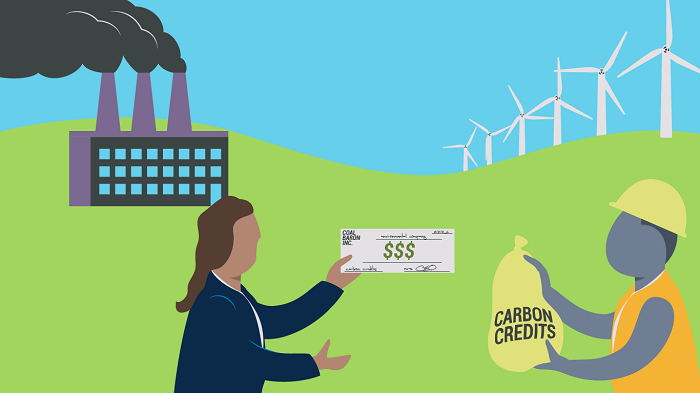CARBON MARKETS
1. Context:
- The Energy Conservation Bill, 2022 was passed in Parliament, despite the Opposition's demands to send it for scrutiny to a parliamentary committee.
- The Bill empowers the government to establish carbon markets in India & specify a carbon trading scheme.
2. Carbon Markets:
- Article 6 of the 2015 Paris Agreement provides for the use of international carbon markets by countries to fulfil their Nationally Determined Contributions (NDC) to keep global warming within 20 C.
- Carbon Markets are essentially a tool for putting a price on carbon emissions; they establish trading systems where carbon credits can be brought & sold.
- A carbon credit is a kind of tradable permit that, as per UN standards, equals one tonne of carbon dioxide removed/sequestered from the atmosphere.
- As per United Nations Development Programme (UNDP) reports, the interest in carbon markets is growing globally.
- 83% of NDCs submitted by countries mention their intent to make use of international market mechanisms to reduce greenhouse gas emissions.
- There are two types of carbon markets: i)Compliance Markets, ii) Voluntary Markets.
- Compliance markets, which are set up by policies at the national, regional & international level are officially regulated.
- Voluntary markets are those in which emitters-corporations, private individuals buy carbon credits to offset the emission of 1 ton of CO2 /equivalent greenhouse gases.
- Such carbon credits are created by activities which reduce CO2 from the air like afforestation.
- In voluntary market, a corporation looking to compensate for its unavoidable emissions, purchases carbon credits from an entity engaged in projects that reduce, remove, capture or avoid emissions.
- For example, in the aviation sector, airlines may purchase carbon footprint of the flights they operate.

3. Challenges:
- The UNDP pointsout serious concerns pertaining to carbon markets ranging from double counting of greenhouse gas reductions, quality & authenticity of climate projects that generate credits to poor market transparrency.
- There are concerns about 'greenwashing'-companies may buy credits, simply offsetting carbon footprints instead of reducing their overall emissions.
4. Concerns about new Bill:
- The Bill empowers the Centre to specify a carbon credits trading scheme.
- Under the Bill, the central government will be able to issue carbon credit certificates.
- These carbon credit certificates will be tradeable in nature.
- Other persons would be able to buy carbon credit certificates on a voluntary basis.
- Opposition members pointed out that the Bill does not provide clarity on the mechanism to be used for the trading of carbon credit certificates & about who will regulate such trading.
- Questions are raised about the right Ministry to bring in a scheme of this nature, pointing out that while carbon market schemes in other countries are framed by their environment ministries, the Indian Bill was tabled by the Power Ministry.
- The Bill does not specify whether certificates under already existing schemes would also be interchangeable & tradeable with carbon credit certificates.
- Two types of tradeable certificates are issued in India-Renewable Energy Certificates (RECs) & Energy Savings Certificates (ESCs).




